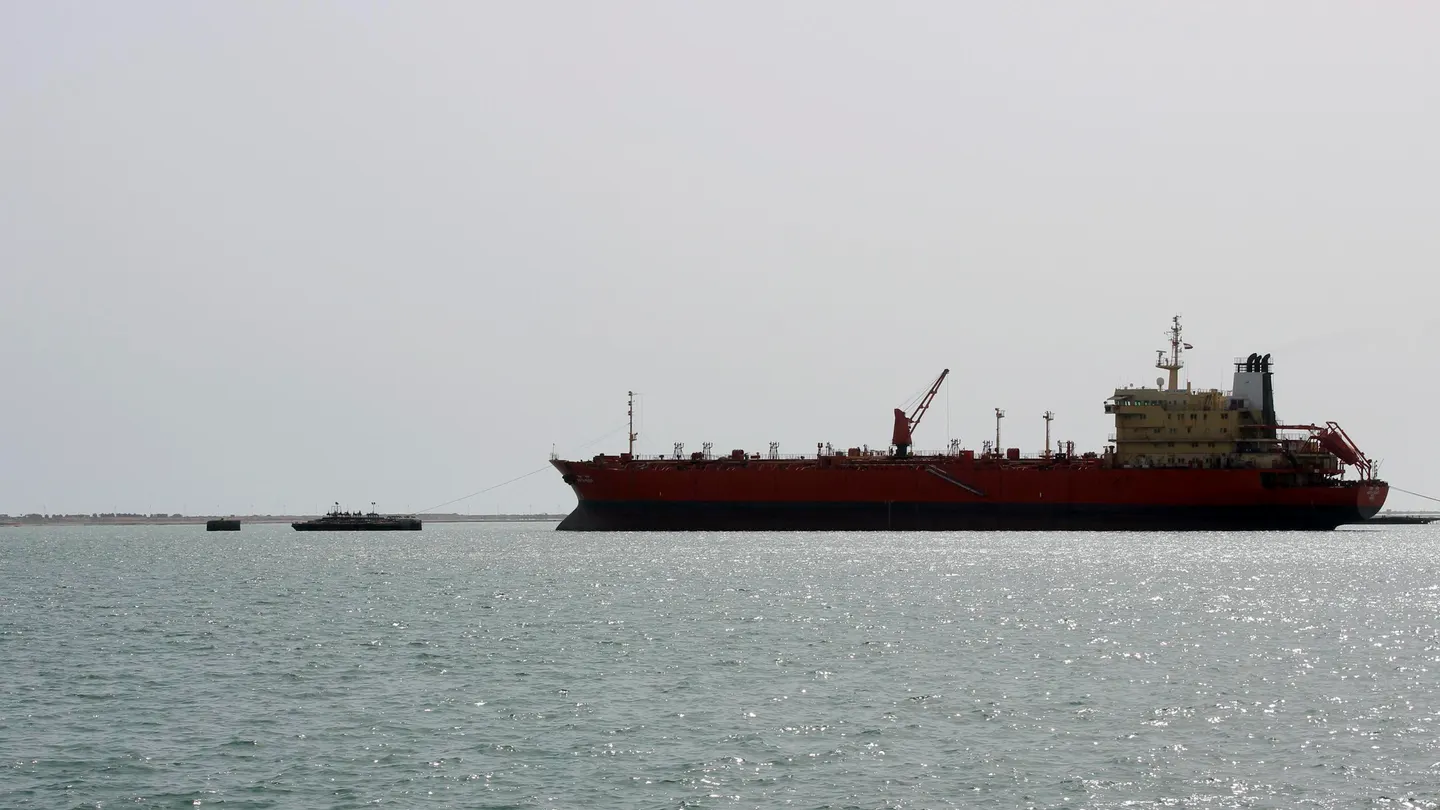- Home
- Billionaires
- Investing Newsletters
- 193CC 1000
- Article Layout 2
- Article Layout 3
- Article Layout 4
- Article Layout 5
- Article Layout 6
- Article Layout 7
- Article Layout 8
- Article Layout 9
- Article Layout 10
- Article Layout 11
- Article Layout 12
- Article Layout 13
- Article Layout 14
- Article Sidebar
- Post Format
- pages
- Archive Layouts
- Post Gallery
- Post Video Background
- Post Review
- Sponsored Post
- Leadership
- Business
- Money
- Small Business
- Innovation
- Shop
Recent Posts
Houthis Claim Red Sea Strike, UK Navy Reports Minor Damage

In the volatile waters of the Red Sea, tensions escalated yet again as Iran-backed Houthi militants claimed responsibility for a missile strike on what they described as an “American ship.” However, conflicting reports emerged as the U.K. Navy stated that the targeted cargo vessel, the Marshall Islands-flagged Star Iris, sustained only minor damages. According to a statement released on Monday by a Houthi military spokesperson, the group purportedly launched “suitable naval missiles” at the Star Iris, achieving what they described as an “accurate and direct” hit. Despite the vessel’s ownership by the Greek shipping company Star Bulk Carriers Corp., which is publicly listed in the U.S., the statement erroneously referred to it as American.
The Houthi assertion of responsibility for the attack comes amidst a series of incidents targeting commercial shipping in the region. The group vowed to persist with such assaults until what they termed as the cessation of U.S. and British aggression against them and the lifting of the “siege on the Palestinian people in Gaza.” However, contradicting the Houthi claims, the United Kingdom Marine Trade Operations issued a notification confirming the attack on the Star Iris but reported only minor damage. The British Naval agency further assured that the vessel and its crew were safe, proceeding to their next port of call unharmed.
This latest development adds to the escalating tensions between Western powers and the Iran-backed Houthi rebels. Over the past month, both U.S. and British forces have conducted multiple attacks against Houthi targets in Yemen in response to the militia’s relentless targeting of commercial shipping in the Red Sea since November.
The most recent coalition strikes occurred on February 3, targeting 36 Houthi installations across 13 locations. These strikes aimed at dismantling weapon storage facilities, missile systems, launchers, air defense systems, and radars used by the Houthi militants. The Houthi attacks on Red Sea shipping purportedly stem from what the group claims is a retaliatory response to the ongoing Israeli military operation in Gaza. Pentagon Press Secretary Major General Pat Ryder commented on the situation, stating that the U.S. military’s actions against the Houthi militia were yielding “good effects.”
Monday’s incident marks the first major Houthi attack on commercial shipping in the region in over a week, underscoring the persistent threat posed by the Iran-backed rebels to maritime security in one of the world’s most critical waterways. The Red Sea serves as a vital maritime corridor for international trade, connecting the Mediterranean Sea to the Indian Ocean via the Suez Canal. Any disruption to shipping in this region could have significant ramifications for global commerce, affecting the flow of goods and energy supplies.
International efforts to safeguard maritime security in the Red Sea have intensified in recent years, with coalition naval forces patrolling the waters to deter and respond to threats posed by militant groups like the Houthis. Despite these efforts, the sporadic nature of the attacks underscores the challenges in maintaining maritime security in the region. The Houthi rebels, with their access to advanced weaponry supplied by Iran, continue to pose a significant threat not only to commercial shipping but also to regional stability.
In response to the latest attack, diplomatic channels are expected to be activated as the international community seeks to de-escalate tensions and prevent further disruptions to maritime trade in the Red Sea. The incident serves as a stark reminder of the complex geopolitical dynamics at play in the region, where competing interests and alliances intersect, often resulting in destabilizing actions with far-reaching consequences.
As stakeholders assess the fallout from this latest incident, the need for a coordinated and comprehensive approach to maritime security in the Red Sea has never been more pressing. Only through collective action can the threats posed by militant groups like the Houthis be effectively mitigated, safeguarding the vital artery of global trade from further disruption.
Recent Posts
Categories
- 193cc Digital Assets2
- 5G1
- Aerospace & Defense46
- AI37
- Arts3
- Banking & Insurance11
- Big Data3
- Billionaires446
- Boats & Planes1
- Business328
- Careers13
- Cars & Bikes76
- CEO Network1
- CFO Network17
- CHRO Network1
- CIO Network1
- Cloud10
- CMO Network18
- Commercial Real Estate7
- Consultant1
- Consumer Tech180
- CxO1
- Cybersecurity68
- Dining1
- Diversity, Equity & Inclusion4
- Education7
- Energy8
- Enterprise Tech29
- Events11
- Fintech1
- Food & Drink2
- Franchises1
- Freelance1
- Future Of Work2
- Games141
- GIG1
- Healthcare78
- Hollywood & Entertainment186
- Houses1
- Innovation42
- Investing2
- Investing Newsletters4
- Leadership65
- Lifestyle11
- Manufacturing1
- Markets20
- Media193
- Mobile phone1
- Money13
- Personal Finance2
- Policy567
- Real Estate1
- Research6
- Retail1
- Retirement1
- Small Business1
- SportsMoney33
- Style & Beauty1
- Success Income1
- Taxes2
- Travel10
- Uncategorized8
- Vices1
- Watches & Jewelry2
- world's billionaires415
Related Articles
Netflix Secures 2027 and 2031 Women’s World Cup Rights
Netflix has clinched an exclusive streaming deal for the next two FIFA...
By 193cc Agency CouncilDecember 20, 2024Meta Fixes Facebook, Instagram, WhatsApp Outages
Meta, the parent company of Facebook, Instagram, and WhatsApp, faced significant outages...
By 193cc Agency CouncilDecember 12, 2024Roy Jones Jr. Confident He Can Beat Jake Paul, Issues Challenge
Boxing legend Roy Jones Jr. has made waves by declaring that he’s...
By 193cc Agency CouncilDecember 11, 2024Tsunami Warning Lifted After 7.0 Quake Off California Coast
A tsunami warning that affected large portions of northern California and Oregon,...
By 193cc Agency CouncilDecember 6, 2024















Leave a comment